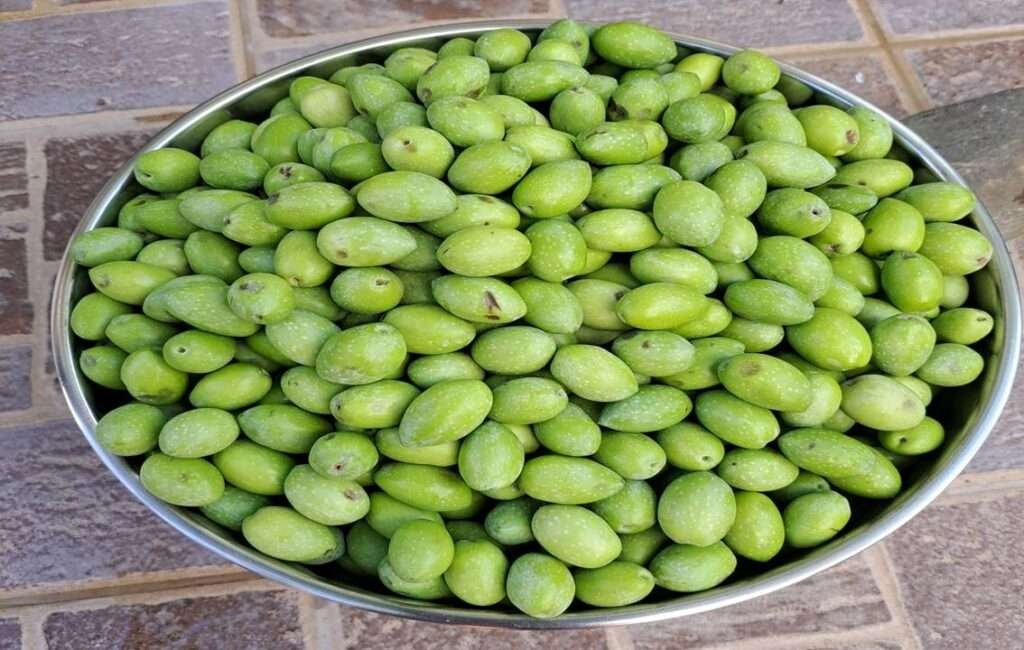
The significance of Cypriot olive oil
A HIGHLY VALUED PRODUCT
From ancient times to the present day, the island’s fertile soil and quite unique climate have created the perfect environment to allow olive trees across the island to flourish. With this in mind, Cyprus has a long and storied tradition of olive cultivation. Olive groves are widely spread across the island, and they extend from the foothills of the Troodos Mountains all the way to the island’s coastal areas.
A STORY OF TRADITION, FLAVOUR & CULINARY PROWESS
Olive oil is regarded as the Mediterranean’s liquid gold by most Cypriots, and the olive groves of Cyprus are highly valued for the exquisite oil that they produce each year. The story of Cypriot olive oil tradition, flavour, and culinary prowess is often emphasised by the journey that it takes from the grove to the table. The olive harvest, which typically takes place between October and January, and the oil produced, remain an essential component today of Cypriot agriculture.
BOTH LARGE & SMALL
As well as larger commercial operations, there are also several small family-owned farms that actively contribute to the island’s olive and olive oil production. Whilst the larger commercial operations have adopted modern mechanised techniques, the smaller farms have kept in place time-honoured production techniques and traditions. These processes have been passed down through each generation and have helped to maintain the purity and flavour of Cypriot olive oil. These processes generally involve hand-picking the olives before their transfer to local pressing mills. Once at the mill, they are then cold-pressed to obtain their precious oil.


THE PROCESS OF CYPRUS OLIVE OIL PRODUCTION
Soil, altitude, and climate around regions like Limassol, Paphos, and Nicosia influence the flavour profiles of most Cypriot olive oils. Cyprus olive oil, as a result, offers consumers a diverse range of products that all carry both unique and distinct features. Different versions of Cypriot olive oil often contain green, grassy notes, along with other profiles that offer ripe, fruity stone fruits that have distinct almond notes. Cyprus olive oil also follows a production line that follows a fairly traditional, land-to-table sequence that also helps to ensure the utmost quality of product. With this in mind, modern facilities often combine some traditional methods of Cypriot olive oil production, ensuring the quality of a product that has gained world recognition over the years.
COMMON SENSORY NOTES THAT MIGHT BE ENCOUNTERED
Frontal: Green apple, tomato, or artichoke.
Mid-palate: Almond, almond blossom, or tropical fruit.
Finish: Peppery bite or a mild warmth in the throat.
Cypriot olive oil is best consumed within 12–18 months of harvest. Proper storage, however, can often extend life beyond this period of time.
HARVESTING & PRODUCTION METHODS FOR CREATING CYPRIOT OLIVE OIL
Timing: Olive trees are typically harvested in the late autumn to early winter. Early harvests tend to yield more fruity, green flavours that offer a more peppery, pungent, and bitter characteristics. Later harvests generally produce a richer, more mature oil that is both smoother and milder.
Hand picking: This age-old harvesting method carefully collects intact olives. This helps to preserve the fruit and reduces bruising, which ultimately affects the quality of the product.
Netting and shaking: Branches are often shaken or beaten so that olives drop into nets. Some modern methods include using mechanical shakers or combs for efficiency.
Freshness: Olives are always processed within 24–48 hours of their harvest. This helps to minimise fermentation and degradation.
Cleaning: Olives are then conveyed to a reception area where leaves, twigs, dirt, and other debris are removed.
Sorting: Olives are then thoroughly checked for damage or overripeness. Stones, spoiled fruit, or excess debris are discarded.
The modern press: Most Cypriot producers use modern continuous centrifugation that involves the use of two or three-phase decanter centrifuges to separate oil, water, and solids efficiently. Stainless steel hammer mills or disc crushers are commonly used to rupture the olive fruit. This then releases the oil-containing droplets. The second phase involves slowly churning the olive paste to extract further smaller oil droplets. It is essential to control the temperature during this process. This helps to preserve not only the aroma and flavours, but also helps to keep the polyphenols and antioxidants intact.
The traditional press: Some smaller artisanal producers still advocate the use of smaller traditional stone mills, which are used to rupture the olive fruit. Once the initial oil-containing droplets are collected, the remaining paste is spread onto fibre mats or hoops. The paste is then further pressed to extract oil and moisture, with the oil separating from the paste.
Result: Both methods result in an unrefined crude olive oil that usually contains moisture, solids, and traces of water. Degumming is a process used to remove phospholipids that can affect stability. Filtration is used to improve clarity and shelf life. Some extra-virgin oils are bottled unfiltered for a more natural appearance and texture. Cyprus’s premium products are usually unrefined or only lightly filtered. Cypriot extra-virgin olive oil, for example, does not undergo continuous refining. This occurs only for the lower-grade olive oils that might be refined.
Storage: Oil is then stored in stainless steel tanks or dark glass bottles to protect it from both light and heat. Oxygen exposure is minimised to preserve freshness.
Bottling: This occurs soon after filtration. Dark glass bottles or tins, and sometimes PET for certain markets, are used to reduce light exposure.
Labelling: All labels include information regarding the measured factory acidity, origin, and harvest date.


